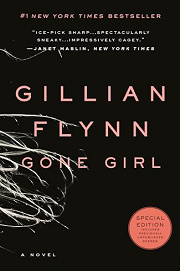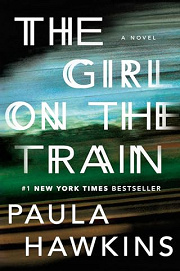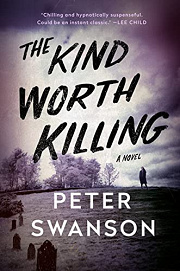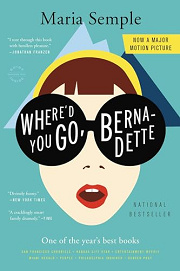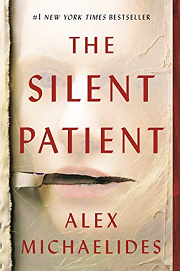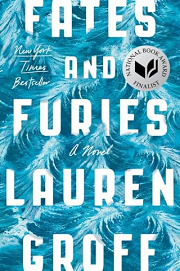Share your thoughts in a quick Shelf Talk!
Gone Girl by Gillian Flynn
When a wife disappears on her fifth anniversary, the media frenzy ignites—and a marriage’s carefully curated image begins to crack. Razor-sharp and twisty, Gone Girl is a modern noir about love, lies, and the stories we sell ourselves.
Have you read this book? Share what you liked (or didn’t), and we’ll use your answers to recommend your next favorite read!
Love Gone Girl but not sure what to read next?
These picks are popular with readers who enjoyed this book. Complete a quick Shelf Talk to get recommendations made just for you! Warning: possible spoilers for Gone Girl below.
In Gone Girl, did you enjoy ...
... an unreliable, self-deceiving narrator who keeps shifting what you believe?
The Girl on the Train by Paula Hawkins
If you loved how Nick and Amy’s accounts in Gone Girl constantly made you re-evaluate the truth—especially when Amy’s diary flips your loyalties—Rachel’s blackout gaps and self-serving memories will hook you the same way. As Rachel peers into a missing-person case from a commuter train window, every reveal forces you to reinterpret earlier scenes, much like the way Amy’s “Cool Girl” manifesto reframes the Dunnes’ marriage.
... alternating his-and-hers POV mind games that escalate into murder?
The Kind Worth Killing by Peter Swanson
You enjoyed how Gone Girl toggles between Nick’s present-day scramble and Amy’s confessional entries to build a chess match of a marriage. Here, multiple narrators—each with their own secrets—ratchet up the tension as a chance airport meeting spirals into conspiracies, betrayals, and lethal plotting. If the cat-and-mouse between Nick and Amy during the media circus and treasure-hunt clues thrilled you, these dueling perspectives will scratch the same itch.
... a disappearance unraveled through emails, memos, and files?
Where'd You Go, Bernadette by Maria Semple
If Amy’s diary entries and planted evidence captivated you—the way documents shape the narrative of her fifth‑anniversary vanishing—this comedic mystery dissects a missing mom through emails, school newsletters, and official records. The dossier-style storytelling lets you play detective, much like parsing Amy’s entries versus Nick’s version to uncover what really happened.
... a mid-story rug-pull that forces you to reinterpret everything you’ve read?
The Silent Patient by Alex Michaelides
If the jaw-drop turn in Gone Girl—when Amy’s true plan clicks into place—made you grin, this psychological thriller delivers a similarly audacious twist. As a therapist probes a famous painter who won’t speak after a shocking crime, subtle clues accumulate until a reveal that, like Amy’s post-disappearance confession, recasts motives, timelines, and every prior assumption.
... a marriage dissected in two halves, revealing the secrets each spouse hides?
Fates and Furies by Lauren Groff
If what really grabbed you in Gone Girl was the razor-edged autopsy of marriage—performances, resentments, and the stories spouses tell—this novel gives you that psychological depth without the crime-plot trappings. One half presents a husband’s version of a seemingly golden union; the second, like Amy’s “Cool Girl” reckoning, exposes the wife’s private truths and redefines everything you thought you knew about the relationship.
Unlock your personalized book recommendations! Just take a quick Shelf Talk for Gone Girl by Gillian Flynn. It’s only a few questions and takes less than a minute.
